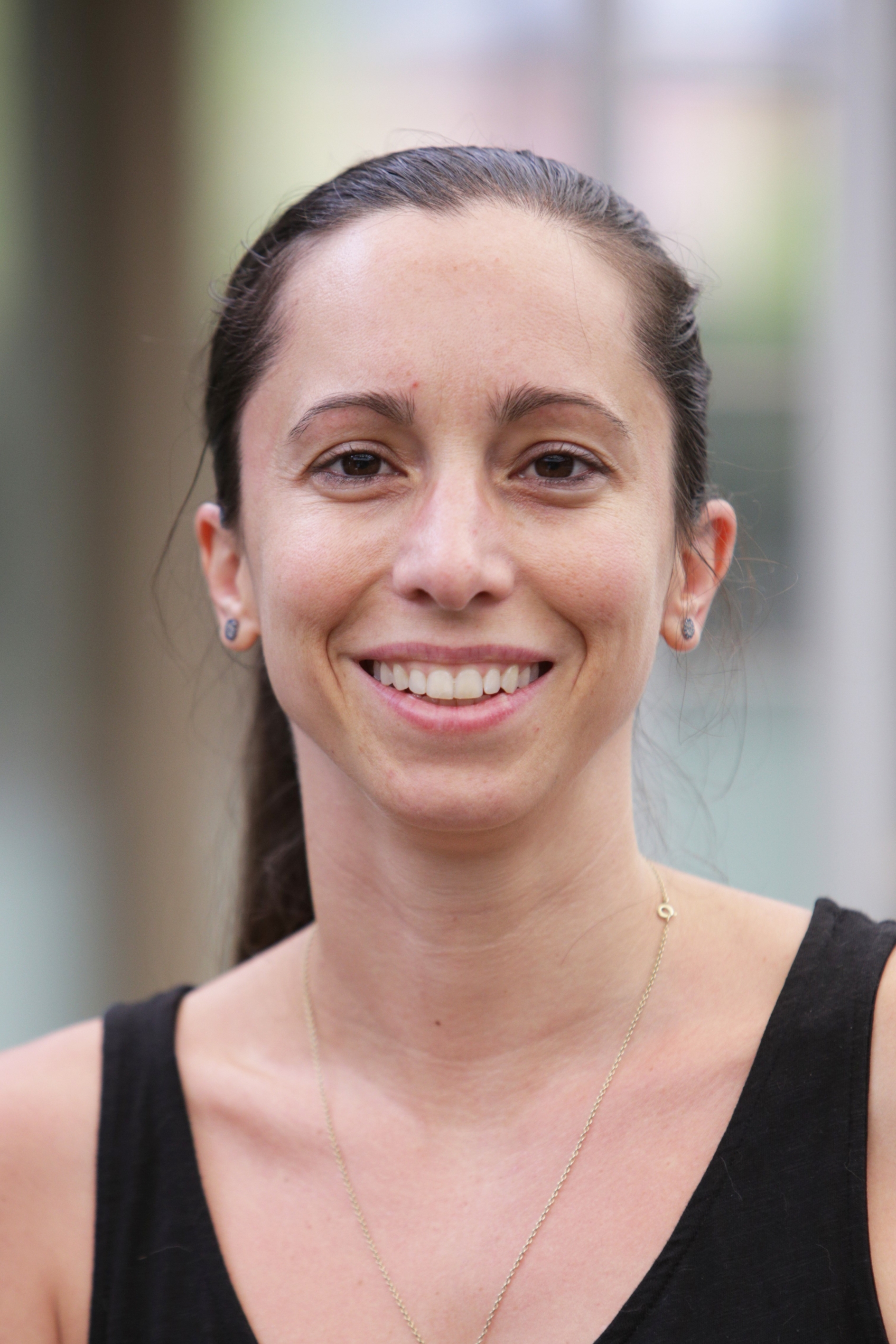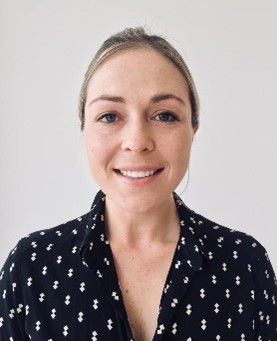Current Graduate Associates

| Qing Li (PhD)Qing is a Chinese PhD student who holds two Masters’ degrees in Economics and Psychometrics from University of Illinois at Chicago. Her dissertation is focused on how tobacco farming affects smallholder farmers’ health and wealth in Kenya and Indonesia. She uses primary data for her dissertation from a multi-country project on the political economy of tobacco farming in low- and middle-income countries funded by the US National Institutes of Health (NIDA, Fogarty, and NCI), and the Bloomberg Philanthropies (through the Johns Hopkins Bloomberg School of Public Health), where she has been in the survey instrument development core team and the chief data analyst and database manager since 2015. She also works extensively on physical activity, diet, and smoking topics. She plans to graduate in 2024. Supervisors: Prof. Corné van Walbeek; co-supervised by Jeff Drope (UIC) and Alfred Mukong (UNam) |

| Vanessa Darsamo (PhD)Sugar-sweetened beverages in Nigeria: Affordability and expenditure and price elasticities Vanessa is a PhD candidate who holds two Master’s degrees in Applied Economics and Development Economics from the University of Cape Town. One of her Master’s theses focused on sugar-sweetened beverage (SSB) affordability and the SSB demand elasticities in Nigeria using the Deaton method and the Nigeria Household Survey, Panel data from 2010 to 2016. The beverages included in the demand elasticity estimates were carbonated soft drinks (CSDs), chocolate drinks, milk, sugar, and packaged water. Carbonated soft drinks and juices became relatively more affordable in Nigeria between 2005 and 2018, and the per capita consumption of both products increased over time. The own-price elasticities of CSDs were found to range from -0.8 to -1.8, while the income elasticity of demand was found to be approximately 0.4 for CSDs. Vanessa is a research officer at REEP, working on a project that provides reliable data and information on tobacco to tobacco control stakeholders in various African countries. Supervisor: Prof. Corné van Walbeek |

| Retselisitsoe Pokothoane (PhD)Pokothoane is a Mosotho Economics PhD student at the University of Cape Town (UCT) and a research affiliate at REEP. He holds a Master’s degree in Economics (UCT, 2021), where he was a Canon Collins Scholar and a Bachelor’s degree in Economics and Statistics (National University of Lesotho [NUL], 2019), where he received top student prize from Lesotho’s Central Bank. His PhD thesis estimates cigarette demand using novel approaches, and examines the distributional effects of cigarette excise tax increases across socioeconomic groups in Lesotho. He also works part-time on Tobacco Control Data Initiative (TCDI) and Data on Youth and Tobacco in Africa (DaYTA) projects. Before his PhD studies, he was a research assistant at REEP under the Minimum Unit Price (MUP) policy on alcohol project and a lecturer at Botho University and NUL. Supervisor: Prof. Corné van Walbeek |

| Beresi Pheea (Masters)Pheea is an Economic Development master’s student at the University of Cape Town (UCT). He holds a BA in Economics and Statistics from the National University of Lesotho (First Class Honours). Pheea has tutored Master’s and PhD level Quants (Advanced Statistics and Probability Component, ECO5011F). His dissertation focuses on analysing the cigarette market in Lesotho, with particular emphasis on the price differentials, the availability of cheap cigarettes and the effect of a newly introduced tobacco levy on cigarette prices. He utilises the African Cigarette Prices (ACP) project data from REEP, spanning 2016 to 2024. He has a novel insight into this data and data collection process as he has been a fieldworker for multiple rounds of this project. Supervisor: Ms Kirsten van der Zee |

| Timothy Evans (Masters)Timothy was awarded his Economics Honours degree from UCT (in the first class) in 2017. He then spent a year travelling, and two years working at RBB Economics, before returning to UCT in 2021 to study a Masters in Economics. For his thesis, he assessed whether a financial incentive exists for investors to divest from tobacco companies in view of the adverse effects of smoking. He found that the demand for cigarettes is in decline due to tightening tobacco regulation and increasing health awareness, and as a result all but one of the companies he analysed experienced declines in tobacco sales (in dollar terms) over the period FY2014-FY2020. He also found that tobacco companies have become increasingly inefficient at generating profits. Under the assumption that financial markets tend to reward the stock prices of fast-growing firms, Timothy concludes that significant uncertainty exists as to the likely future growth of tobacco companies, and that it is therefore (more) risky for economic agents to invest in them. Supervisor: Professor Corné van Walbeek |
Former Graduate Associates
2024/5

| Zunda Chisha (PhD)Dr. Zunda Chisha is a Research Officer at the Research Unit on the Economics of Excisable Products (REEP) and the Programme Director of the WHO Framework Convention on Tobacco Control (FCTC) Knowledge Hub on Tobacco Taxation at UCT. His research focuses on the economics of health taxation, the illicit trade in excisable products, and the broader social and commercial determinants of health, particularly in low- and middle-income countries. He holds a PhD in Economics from UCT, where his doctoral thesis, Economic and Health Implications of Tobacco and Alcohol Use in South Africa: A Household Expenditure Analysis, examined how tobacco and alcohol consumption affect household spending patterns and child health outcomes. He graduated in April 2025. Dr. Chisha also holds a Master’s in Public Health (Health Economics) with distinction from UCT and a Bachelor’s degree in Economics from the University of Zambia. Supervisors: Prof. Corné van Walbeek and Grieve Chelwa |
2023

| Nicole Vellios (PhD 2023)The Determinants of Smoking initiation in South Africa Nicole is a Research Officer at REEP and a PhD student. She hopes to submit her thesis mid-2022. The title of her thesis is 'Smoking cessation in South Africa: cigarette prices, plain packaging, and illicit trade'. Nicole holds a Master of Social Science (specialising in Applied Economics) from UCT. She joined the project full time after graduating in 2013. Aside from publishing tobacco-related research, Nicole has published papers on alcohol, cannabis, and fees at UCT. Supervisor: Prof. Corné van Walbeek, co-supervised by Hana Ross and Emmanuel Guindon (McMaster, Canada) |
2021

| Retselisitsoe Pokothoane (Masters 2021)Pokothoane was an Economics Masters student and Canon Collins scholar at UCT in 2021. He holds a BA Economics from the National University of Lesotho. His thesis uses Global Youth Tobacco Survey (GYTS) data for Lesotho (2008) to understand the patterns, prevalence and correlates of tobacco smoking among the youth in his home country, Lesotho, mainly with Microeconometrics application (Discrete choice modelling). His research interests mainly involve econometric modelling using both micro data (Microeconometrics) & macro data (Applied Time Series Analysis) and Analysis of African survey data. He is also interested in the Economics aspects of Tobacco Control and Economics of Education, all with a focus on econometric application. Prior to joining UCT, he worked as an Undergraduate Teaching Assistant (TA) in the Department of Economics, National University of Lesotho (NUL). Supervisor: Prof. Corné van Walbeek |

| Laili Meitaalo (Masters: University of Namibia)Laili Tamukondjomeitaalo Iipumbu was a Namibian Master of Science in Economics student at the University of Namibia in 2021. She holds a Honors degree in Economics from Namibia University of Science and Technology and Bachelor of Technology in Economics from the Polytechnic of Namibia. Her dissertation is focused on investigating the crowding-out effects of tobacco and alcohol expenditure on household resource allocation in Namibia. Her Thesis uses the 2015/16 Namibia Household Income and Expenditure Survey (NHIES), a nationally representative household-level dataset. Laili also works as an Investment Analyst for BFS Fund Manager Pty Ltd, an unlisted investment fund manager for the Namibia Procurement Fund with about N$ 600 million funds under management. Supervisor: Dr. Alfred Mukong |
2020

| Lisa Clarke (Masters 2020)Lisa was awarded her Finance Honours degree from UCT in 2010 and subsequently a Master of Business Administration Degree (in the first class) from UCT GSB in 2020. Lisa is currently working as a Client Manager in the Insights Innovation Team at Kantar. Lisa drew from hundreds of thousands of observations from store-level scanner data which includes prices of fruit juices in two of South African’s three largest retailer groups between April 2017 and March 2019. The results indicate significant increases in prices of taxed fruit juices after the introduction of the Health Promotion Levy and null price increases of tax-exempt fruit juices. Equally, there was a significant increase in the number of tax-exempt fruit juices available for sale in the market after the introduction of the levy. Further, evidence of under-shifting of tax on taxed fruit drinks and nectars with larger pass-through on smaller packaging sizes (500mls and less) was revealed. Supervisor: Dr. Grieve Chelwa (GSB) |
2019

| Michal Stoklosa (PhD 2019)Effects of the Evolving Global Tobacco Product Landscape on Smokers' Switching Behaviours Michal hails from Poland and received an MA in Managerial Economics from the University of Warsaw and subsequently an MA in Economics from Georgia State University. In his PhD thesis Michal analysed three aspects of tobacco product switching. First, he used 2012 and 2014 data from the ITC Zambia survey to model price-driven substitution. He found that reducing between-product price differences would reduce substitution from cigarettes to roll-your-own tobacco. Second, he used 2014-2018 monthly retailer panel data from Japan to show that traditional cigarette sales trends changed significantly when a novel tobacco product, IQOS, was introduced. Thus, between-product switching is influenced by the new product’s introduction. Finally, he used 2004-2017 European Commission data to demonstrate that differences in cigarette prices between jurisdictions might incentivize some smokers from jurisdictions with more expensive cigarettes to switch to cheaper cigarettes available across the border. These findings are useful for policymakers looking to regulate tobacco markets. Other than a four-month stint at UCT, Michal was based at the American Cancer Society in Atlanta throughout his studies. He graduated in December 2019. In 2020 he took up a research position at the University of Illinois in Chicago’s Tobacconomics team. Supervisors: Prof Corné van Walbeek (UCT) and Dr Jeffrey Drope (American Cancer Society) |

| Chipo Yvette Rusere (Masters 2019)Chipo is from Zimbabwe, and completed her undergraduate and honours degrees at Rhodes University in Grahamstown. In her Master’s thesis, Chipo assessed the implementation of Zimbabwe’s current tobacco-control legislation, and how it aligns with the provisions of the WHO Framework Convention on Tobacco Control. Zimbabwe ratified the FCTC in 2014, becoming its 181st Party. Since ratification, the government has incentivised tobacco production, contrary to the WHO FCTC. Tobacco control is not prioritised. The conflicting signals, coupled with seemingly contradictory actions, have raised doubts about the country’s true intent when it ratified the treaty. Chipo found that Zimbabwe’s existing tobacco-control legislation was biased because of tobacco-industry interference. She concludes that accession to the WHO FCTC appears to have been an opportunity to present the country’s concerns, particularly those relating to the supply-side provisions of the WHO FCTC. Chipo was awarded her Masters in December 2019. After completing her degree, she enrolled for a second Master’s in Climate Change and Sustainable Development with the African Climate and Development Initiative (ACDI) at UCT. Concurrently, Chipo is now a Manager at Genesis Analytics, an economics-based consultancy. Her work is focused on climate adaptation, climate finance and the evaluation of climate-related projects. Visit her LinkedIn profile. Supervisor: Professor Corné van Walbeek and Dr Catherine Egbe (SA Medical Research Council) |

| Catherine Namome (PhD 2019)The Economics of Tobacco Production and Feasible Alternatives in Uganda Catherine hails from Uganda and has a first degree in forestry from Makarere University and a Masters degree in Agricultural Economics from the University of Pretoria. In her thesis, Catherine conducted a survey among tobacco-growing farmers and non-tobacco-growing farmers in West Nile province in Uganda to understand why some choose to grow tobacco and why other farmers choose to not grow tobacco. She estimated producers’ responses to differences in the prices of tobacco, coffee and cassava, as well as differences in yields of these products in these products. She found, unsurprisingly, that farmers change their crops in ways that increase their profitability. She also considered the efficiency of farms in the West-Nile sub-region, and found that subsistence food crops do not offer a viable alternative to tobacco. Vertically integrated farmers are at the mercy of powerful buyers and processors, who control the prices that farmer receive for their crops. Catherine was awarded her PhD degree in December 2019. Supervisors: Prof. Corné van Walbeek, Prof. Tony Leiman and Prof. Beatrice Conradie |

| Abel Otwori Nyagwachi (PhD 2019)Essays on the economics of tobacco and alcohol control policies in Kenya Abel Nyagwachi holds a BA in Economics and Master of Economics Degree from Kenyatta University, Kenya. He joined UCT in 2015 for his PhD studies. Before joining UCT he worked as an Economist at the National Treasury, Kenya and the Parliamentary Budget Office, Kenya. Abel’s thesis used data from two household and budget surveys (2005/6 and 2015/16), to examine some effects of the tobacco- and alcohol-control policies that were implemented in Kenya between 2005 and 2015. He found that tobacco- and alcohol-consuming households spend less on necessities such as food, healthcare and education. He also found that tobacco- and alcohol-control polices contributed to a decline in the prevalence of child malnutrition in tobacco and alcohol consuming households. An increase in the price of cigarettes reduces the demand for cigarettes, other tobacco products and some stimulants. An increase in the price of beer increases the demand for informally-produced alcohol. Tobacco- and alcohol-control policies contributed to a reduction in tobacco and alcohol budget shares in the poorest households. After obtaining his degree in December 2019, Abel went back to his previous job at National Treasury in Kenya. Supervisors: Prof. Corné van Walbeek and Dr Grieve Chelwa (UCT GSB) |
Zeenat Ebrahim (Masters 2019)The Recent Spike in Illicit Tobacco Trade in South Africa Since 2010 and especially since 2015, there has been a substantial increase in the illicit cigarette market in South Africa. In fact, by 2017 the illicit market comprised at least 30% of the market. In her thesis, Zeenat investigates the spike in illicit trade. She was able to interview a number of executives of tobacco companies. She found that the tobacco market is very polarised, with the local manufacturers’ dislike of the government’s tobacco control policies superseded only by their dislike of the established tobacco companies. While some companies openly admit that they are involved in illicit activities, it is rationalised on the grounds that they have to follow this strategy because they are unable to access the market in any other way. The interviewees make some suggestions as to the government can level the playing field. These suggestions are all self-serving, and have little to no regard for public health. Zeenat was awarded her Masters degree in December 2019. Supervisor: Professor Corné van Walbeek | |

| Abdul Gafar Abubakar Masa-ud (Masters 2019)Crowding-Out of Household Expenditure by Tobacco in Ghana Abdul is from Ghana and did his undergraduate studies in his home country. For his Master’s thesis Abdul added to the growing “crowding out” literature, which suggests that households with smokers have different spending patterns than households that do not have smokers. In his thesis, Abdul considered two rounds of the Ghana Living Standards Survey (2005/2006 and 2012/2013) and investigated whether the magnitude of crowding-out changed when tobacco-control laws were introduced in July, 2012. A system of quadratic conditional Engel curves was estimated for a set of eleven groups of commodities for both periods. Abdul found that tobacco crowds out food, alcohol, clothing and transport expenditure and crowds in expenditure on furnishings, health and communication expenditure. He also found that the magnitude of crowding-in and crowding-out declined over the period under study. The tobacco-control policy of 2012 was positively associated with a reduction in the prevalence rate of current tobacco smoking among households and a reduction in households’ budget share allocation to tobacco. Abdul graduated in December 2019. A paper, based on his thesis, was published in Tobacco-Induced Diseases in 2020. Supervisor: Professor Corné van Walbeek |
2018

| Sam Filby (Masters 2018)From leader to laggard: An analysis of barriers to FCTC implementation in South Africa In her master’s dissertation, Sam conducted an analysis of FCTC implementation in South Africa, so that barriers to a full and effective FCTC implementation could be identified. The thesis focussed explicitly on the economic aspects of the treaty: price and tax measures (Article 6); protection from exposure to tobacco smoke (Article 8); packaging and labelling (Article 11); and advertising, promotion and sponsorship (Article 13). Sam calculated compliance rates of 68%, 33%, 51% and 57%, for Articles 6, 8, 11 and 13, respectively. Results show that the barriers to FCTC-compliant policy change in relation to Article 6 stem from capacity constraints within the Department of Finance, Treasury’s strict adherence to “rules” not compatible with Article 6 recommendations, and concerns around increases in illicit trade. An initial lack of political urgency for tobacco control, the perceived need for a new Tobacco Products Control Act, tobacco industry interference, and a lack of technical capacity within the Department of Health served to impede policy progress in relation to Articles 8, 11 and 13. Based on her dissertation, Sam was selected to participate in the National Treasury and International Food Policy Research Institute’s Young Scholars Programme. This led to publication of a working paper entitled The Framework Convention on Tobacco Control’s recommendations on price and tax measures Barriers to implementation in South Africa. Sam graduated top of her class, with distinction in the coursework and the dissertation, in December 2018. Supervisor: Prof. Corné van Walbeek |

| Max Fitchet (Masters 2018)Key drivers of stock growth of “Big Tobacco” Having completed an undergraduate degree in Finance & Economics at UCT while studying toward the CFA charter, Max joined the ETCP at the beginning of 2015. Despite significant headwinds, the share price of large tobacco companies (British American Tobacco, Imperial Tobacco, Japan Tobacco International and Phillip Morris International) have grown strongly between 2000 and 2016. The study considered some key drivers of the growth in share prices, using a combination of financial statements and market related metrics. Max found that “Big Tobacco” has increased its share in the global market through acquisitions and diversification into the vaping and logistics markets. Share buy backs and increased margins have helped offset the decrease in cigarette consumption. However, increasing dividend pay-out ratios, a falling cash conversion cycle and an increased tax burden suggest future difficulties. Max was awarded his Masters in Economics degree in December 2018. Supervisor: Prof. Corné van Walbeek |
2017

| Clarina du Preez (Masters at the University of Pretoria 2017)Declining tobacco production: Analysing key drivers of change The number of South African tobacco growers has decreased from about 1000 in the 1980s to less than 200 currently. The study investigated why this is the case. Clarina conducted face-to-face interviews with about 100 current or former tobacco farmers. The study found that the profit margin realised on tobacco had declined when compared to other crops. The switch away from tobacco was driven by low producer prices, the rising cost of inputs, the availability of alternative crops, and the instability caused by co-operative politics associated with the restructuring of the South African tobacco industry. Supervisors: Prof. Corné van Walbeek (UCT) and Prof. Ferdi Meyer (University of Pretoria) |
2016
Melissa Lubbe (Masters 2016)Melissa completed her undergraduate studies at UCT. She developed an interest in FAS, having seen the struggles of scholars with FAS during her stint as a trainee teacher. For her study, she monitored grade 1-4 learners over a six-month period at Elizabethfontein Primary School (EFPS), a farm school near Clanwilliam in the Western Cape. A local physician tested the children after the scholastic tests were conducted by Melissa, and found that at least 12.4% had FAS. Children with FAS have lower marks for home language and lower behavioural scores. Children with FAS are also hyperactive, distractible and inattentive, which causes classroom disruptions and pose a negative externality to other learners. They find it difficult to follow social cues, but want to be helpful and well liked, making them vulnerable to manipulation. Parents’ binge drinking over weekends makes all children in this area vulnerable to physical, sexual and emotional abuse. Melissa graduated in 2016. A paper, based on this study, was published in 2017 in the International Journal of Environmental Research and Public Health: Melissa Lubbe, Corné van Walbeek and Nicole Vellios, The Prevalence of Fetal Alcohol Syndrome and Its Impact on a Child’s Classroom Performance: A Case Study of a Rural South African School, 14:8 (896). Supervisor: Prof. Corné van Walbeek | |

| Rose Tuyeni Peter (Masters 2016)The effect of proximity to the northern Namibian borders on smoking prevalence among Namibian men Rose hails from Namibia and completed her undergraduate studies at UCT. For her Masters’ study, she investigated border effects, and the likelihood that access to cheaper cigarettes encourages people to smoke more. Using the Namibian Demographic Health Survey of 2013 data she assessed whether the probability of smoking among Wambo, Lozi and Kwangali Namibian men, living within 150km of the Angolan or Zambian borders, is affected by their proximity to these borders, given that cigarettes are cheaper in Angola and Zambia, than in Namibia. She found that that proximity to the border has no statistically significant effect on smoking behaviour in these demographic groups. This may mean that the Namibian government can in fact can pursue more aggressive tobacco taxes, to reduce consumption of tobacco products, without encouraging illicit trade, cross border purchases, or compromising its public health agenda. Rose was awarded the Masters’ degree in December 2016. Supervisor: Prof. Corné van Walbeek |
2015

| Grieve Chelwa (PhD 2015)The economics of tobacco control in some African countries Grieve obtained his BCom degree at the University of Zambia, and subsequently completed his Honours and Masters degrees in Economics at UCT. Grieve started his PhD studies at UCT in March 2012 and graduated in December 2015. He subsequently did a two-year postdoctoral fellowship at Harvard University. Since 2018 he has been employed at the UCT Graduate School of Business, first as Lecturer, but currently as Senior Lecturer. Grieve’s thesis considers three aspects of the economics of tobacco control in three African countries. Firstly, he shows that the cost of tobacco in Zambia is not restricted to the mortality and morbidity costs, but that it changes households’ expenditures away from welfare-enhancing goods and services like food and education. Secondly, he shows that the demand for cigarettes in Uganda is price inelastic, which means that by increasing the excise tax on cigarettes, policymakers can simultaneously reduce cigarette consumption and increase tax revenues. Lastly, Grieve shows that South Africa’s well-known success in reducing per capita cigarette consumption between 1994 and 2004 is largely owed to the government’s consistent tax increases during this time, more than any other tobacco control intervention (e.g. advertising restrictions and restrictions on indoor smoking). Supervisor: Prof. Corné van Walbeek |
2014

| Lara Kruger (Masters 2014)The prevalence of water-pipe smoking among tertiary students in the Western Cape Lara completed her undergraduate studies and Honours at UCT. For her Master’s study, Lara investigated the prevalence and determinants of water pipe smoking amongst students in the Western Cape province of South Africa (i.e. UCT, Stellenbosch University, the University of the Western Cape, and the Cape Peninsula University of Technology). In the study she surveyed 4578 from about 107 000 registered students in the Western Cape. She found that 63% of respondents to the survey had ever smoked waterpipe, 9.9% of respondents smoked waterpipe in the past 30 days and 17.7% of respondents smoked cigarettes in the past 30 days. She found that waterpipe smoking has a strong socialization aspect, and that 25% of users reported health problems related to smoking tobacco. Her thesis was published in the American Journal of Health Behavior. After completing her Master’s degree in 2014, Lara joined Westerford High School (Cape Town) as a Mathematics teacher. Supervisor: Prof. Corné van Walbeek |

| Diana Nyabongo (Masters 2014)The effective level of protection of South African cigarettes manufacturers Diana hails from Uganda, where she completed her undergraduate degree. For her Master’s thesis, Diana considered the cigarette market in South Africa and the impact that the trade tariffs have had on the ability of the industry to raise the net-of-tax price of cigarettes. Between the early 1990s and 2010 the tobacco industry increased the retail price by a substantially greater amount than was warranted by the increase in the excise tax. A number of factors could contribute to this pricing strategy, e.g. the near-monopoly position held by British American Tobacco, the inability to advertise tobacco products since 2001, and the decreasing cigarette market. Regarding the impact that the tariff structure could have on the industry’s pricing structure, the results were largely inconclusive, i.e. it is not clear to what extent the tariff structure contributed to the industry’s strategy of raising the net-of-tax price since the early 1990s. Diana was awarded the Master’s degree in December 2014. Supervisors: Prof. Corné van Walbeek and Prof Lawrence Edwards. |

| Linda Nyabongo (Masters 2014)The socio-economics of tobacco use in the Southern African Customs Union Linda hails from Uganda, and completed her undergraduate studies at Makarere University. Linda’s thesis focused on the socio economic covariates of tobacco use in four Southern African Customs Union countries, namely Namibia, Lesotho, Swaziland and South Africa. For the smaller countries she used the Demographic and Health Surveys and for South Africa she used the National Income Dynamic Study She concluded that the type of tobacco used in the different countries differed significantly. Cigarette use is more prominent in the urban areas, while the use of non-cigarette tobacco, like chewing tobacco, snuff and pipes is more prevalent in rural areas. There are also major gender differences, with men having higher tobacco use rates than women. As education levels increase, there is generally a decrease in tobacco use. Tobacco use is generally higher among older people than younger people. Linda received her Master’s degree in 2014. Supervisor: Prof. Corné van Walbeek |
2013

| Jodie Posen (Masters 2013)The impact of excise tax harmonization in the East African community Jodie’s thesis considered the likely impact of tax simplification and harmonisation in the five countries comprising the East African Community (Kenya, Tanzania, Uganda, Burundi and Rwanda). She concluded that tax simplification and harmonisation would result in substantial fiscal benefits and cigarette consumption reductions in these countries, but that the benefits would not be equal. Countries with current lower excise taxes would benefit more, while countries with current higher excise taxes would benefit somewhat less. The study was studied in depth by the EAC Secretariat some years after it was concluded as a potential guide to excise tax harmonisation in the East African region. Jodie graduated in 2013. She is currently working as a senior economist at the City of Cape Town. Supervisor: Prof. Corné van Walbeek |
